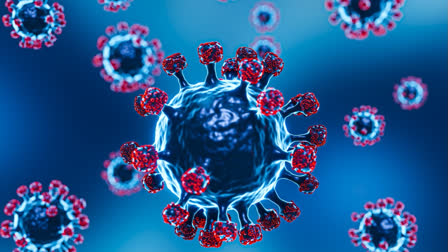COVID-19 infections may have lessened in severity for most, but the concern of "long COVID" still looms. Several studies across the glob have discussed this condition, formally known as post-acute sequelae of SARS-CoV-2 infection (PASC). Defined by persistent symptoms after a COVID-19 infection, these effects can range from mild to disabling, lasting weeks, months, or even years.
According to the Centers for Disease Control and Prevention, CDC, long COVID is characterized by thepresence of at least one symptom for at least three months following infection.
Over 200 symptoms have been documented in long COVID cases, with the most common including fatigue, brain fog, and fever. Research estimates that 10-30% of individuals, including adults and children, who contracted COVID-19 may experience long COVID symptoms.
Dr. Amit P. Gawnde, a pulmonologist in Mumbai, explains that long COVID, also known as Post-COVID Inflammatory Syndrome, results from the lingering inflammation caused by the virus, which can affect the body’s tissues. Even though the initial infection resolves, the damage it caused may persist, leading to ongoing symptoms.
What is Long COVID?
According to the Open Medicine Foundation, long COVIDis more prevalent among those who had severe infections but can also affect individuals with mild cases. Some may experience symptoms later, without realizing they initially had COVID.
Whole-Body Symptoms
Long COVID symptoms can impact the entire body, even in those who had mild initial infection. Reports indicate symptoms can persist for months or years. These include cardiovascular issues, breathing difficulties, and significant fatigue.
Fatigue: Intense tiredness that worsens with physical or mental exertion.
Muscle and Joint Pain: Persistent soreness and weakness.
Fever or Chills: Recurring temperature fluctuations.
Lung Symptoms
Dyspnea, or shortness of breath, is one of the common lung-related symptoms of long COVID:
Breathing difficulties
Persistent cough
Reduced endurance due to lower oxygen levels
Heart Symptoms
Long COVID can also lead to heart complications, such as inflammation of the heart muscle, resulting in:
Heart palpitations or a racing heartbeat
Irregular heartbeat
Chest pain
Shortness of breath
Nervous System Symptoms
COVID-19 can affect the nervous system, including the brain, spinal cord, and nerves. This may result in:
Headaches
Dizziness or lightheadedness, especially after standing
Pins-and-needles sensation
Changes in taste or smell
Seizures
Cognitive issues like brain fog, memory lapses, sleep disorders, and mental health challenges like depression or anxiety
However, these symptoms are rare in individuals without any mental health history.
Digestive Symptoms
Many with long COVID experience digestive disturbances due to an imbalance of gut bacteria, known as dysbiosis.
Changes in appetite
Abdominal discomfort
